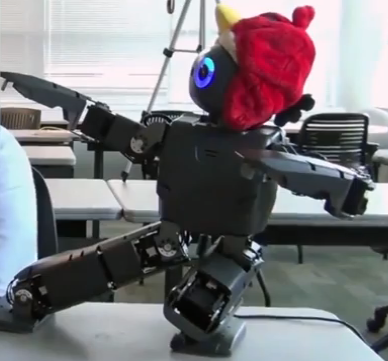We’ve been touting the educational benefits of the Angry Birds games — especially for kids with developmental challenges — for quite some time now. And it seems we’re not the only ones. Researchers over at Georgia Tech are conducting a study on how the hit game can help children build cognitive skills and improve motor function through play.
Children in the study had performed boring or repetitive movements as part of their previous treatment and played the game for about nine minutes, on average. But researchers were able to raise the amount of voluntary treatment time to nearly half an hour using a secret weapon: robots.
Paired with humanoid robots, children in the study are asked to teach their digital companions how to play the game. The robots used in the study learn by example, and eventually attempt to replicate their partner’s actions. Ruth Reader from VentureBeat describes the interaction:
The robot watches and records the players tactics, taking note of where fingers start and stop and how objects move onscreen in relation to one another, all while tracking a players’ success. Then when the robot takes its turn, it replicates the child’s movements, dancing and chirping when it wins points and sadly shaking its head when it loses.
Head on over to VentureBeat to read the full report, and be sure to check out our Learning Guides for Angry Birds, Angry Birds Space and Angry Birds Star Wars to see how these hit games can help kids strengthen executive brain functions.




